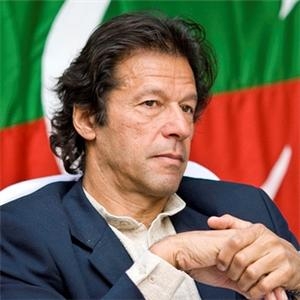Take two examples. The then foreign minister of Pakistain was visiting Delhi in November 2008 when the Mumbai terror attack was staged. Now it turns out the Indian and Pak prime ministers were preparing to meet in New York next month when a mysterious incident occurred on the Line of Control (LoC) in Kashmire on Monday.
Not for the first time Indian soldiers were reported to have been killed in a bizarre attack that, relying only on Indian headlines, throws up a familiar, overdone narrative.
It is not unusual for terror attacks to come at a moment when mutual bonhomie looks nigh in South Asia. Is Pakistain's deep state the only beneficiary of these disruptions?
Or is there someone rejoicing in the Indian establishment too when militarism, buoyed by terrorism, is accorded the front row in our daily lives regardless of the prohibitive costs?
It is of course a given that Pakistain's army has a stake in keeping several quarries off balance. These may include the Americans and the Indians, but they do not exclude the civilian rulers at home.
The deep state, as the army and its intelligence apparatus is often called in Pakistain, is self-confessedly anti-Indian. That is the nature of the beast.
Therefore, it is plausible that the men from whichever Islamist bad turban outfit are said to have attacked the Indian patrol this week, were not hindered by the security establishment.
One likely trigger for the LoC incident could be that the country's civilian commanders are more ready to give India a greater role in Afghanistan than the generals may be willing to grant.
In an interview to Voice of America, Pakistain's foreign policy adviser Sartaj Aziz uncharacteristically stressed and also welcomed India's role in Afghanistan's future reconstruction.
Is that what was shot down, or was sought to be derailed, on the LoC? Or, as some news reports suggest, the killing of five Indian soldiers may be linked to a recent incident in which a clutch of Pakistain-based bully boyz were ambushed by Indian forces as they tried to sneak into Indian Kashmire.
In the big picture too the Pak security establishment gains from any windfall of tensions with India, but increasingly this has less to do with its traditional interests in reheating the Kashmire issue. Its current drive is tethered to the elusive "strategic depth" in Afghanistan, if Afghans will permit such a concept.
Who are the Indians that benefit from, say, a Mumbai-like attack or from the latest LoC incident? I think at the current count, perverse though it may sound, there are more political beneficiaries in India from any incident involving Pakistain than Pakistain can ever have.
As of now, to the best of my knowledge, there is hardly a political group in Pakistain -- from Prime Minister
 Nawaz Sharif
Nawaz Sharif... served two non-consecutive terms as prime minister, heads the Pakistain Moslem League (Nawaz). Noted for his spectacular corruption, the 1998 Pak nuclear test, border war with India, and for being tossed by General Musharraf...
's party to the PPP, from Imran Khan

... aka
Taliban Khan, who ain't the sharpest bulb on the national tree...
's group to the MQM -- to benefit from whipping up anti-India sentiments. In India, on the other hand, even the leftist parties are often seen following right-wing jingoists in the nationalist pursuit.
Take Samajwadi Party leader Mulayam Singh with his unflinching support of Indian Moslems. He rarely spares an opportunity to berate Pakistain. As a former defence minister he may have other constituencies to look after too.
The fact that harmless-looking Rahul Gandhi can readily recall, apropos of little electoral gain, how his grandmother, the late Indira Gandhi, broke Pakistain into two, reflects his eagerness to keep pace with the holy cow called the national interest.
The other day he was applauding the paramilitary forces for keeping democracy alive in India, insisting it was they that crushed the Sikh militancy in Punjab.
The communist-led Left Front on its part has been so badly trounced in recent village-level elections by West Bengal Chief Minister Mamata Banerji, the lady who has pulled the Moslem vote from under the Left's feet, that the Marxists seem to have surrendered their traditional tempered tone on Pakistain. Count it as an erroneous attempt to compensate for the electoral losses.
The irony is that the best chance that peace ever had with Pakistain came from the Hindutva banner of India's Bharatiya Janata Party.
True to form though, it was Hindutva's recklessness that was equally eager to start a dangerous war with Pakistain in May 2002. Atal Behari Vajpayee sought peace but he also nearly led us to a nuclear exchange.
The wide spectrum of political support that India thus offers to unbridled jingoism is matched by its largely opaque intelligence set-up. This aspect of India's own 'deep state' is just getting to be somewhat discussed in the newspapers. Still, very few Indians see their external or internal spy agencies, much less the military, as a source of concern.
The Congress party, led by then head of the opposition Manmohan Singh, had asked some searching questions of the Hindutva rulers when parliament was mysteriously attacked in December 2001. But the party chose to remain silent when the war drums came on.
Today the Congress' defence minister is on the mat for suggesting that the men who attacked the Indian soldiers on the LoC may have been Islamist bully boyz in army fatigues.
The BJP wants his head for not directly naming the Pakistain Army. The truth is that, with the nod of the intelligence set-up, the BJP is trying to nip any peace talks with Pakistain before the coming elections.
The prime ministers of India and Pakistain plan to meet in New York to discuss many issues.
Do they have the courage to take on their respective deep states though? At least then we can know the real truth about terrorism and its strange beneficiaries.
